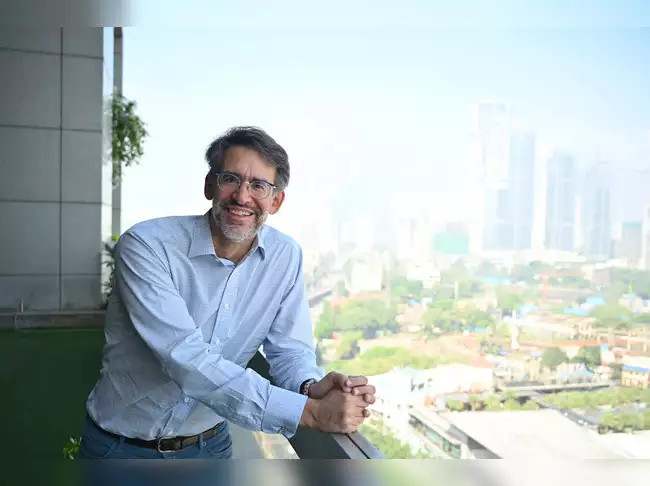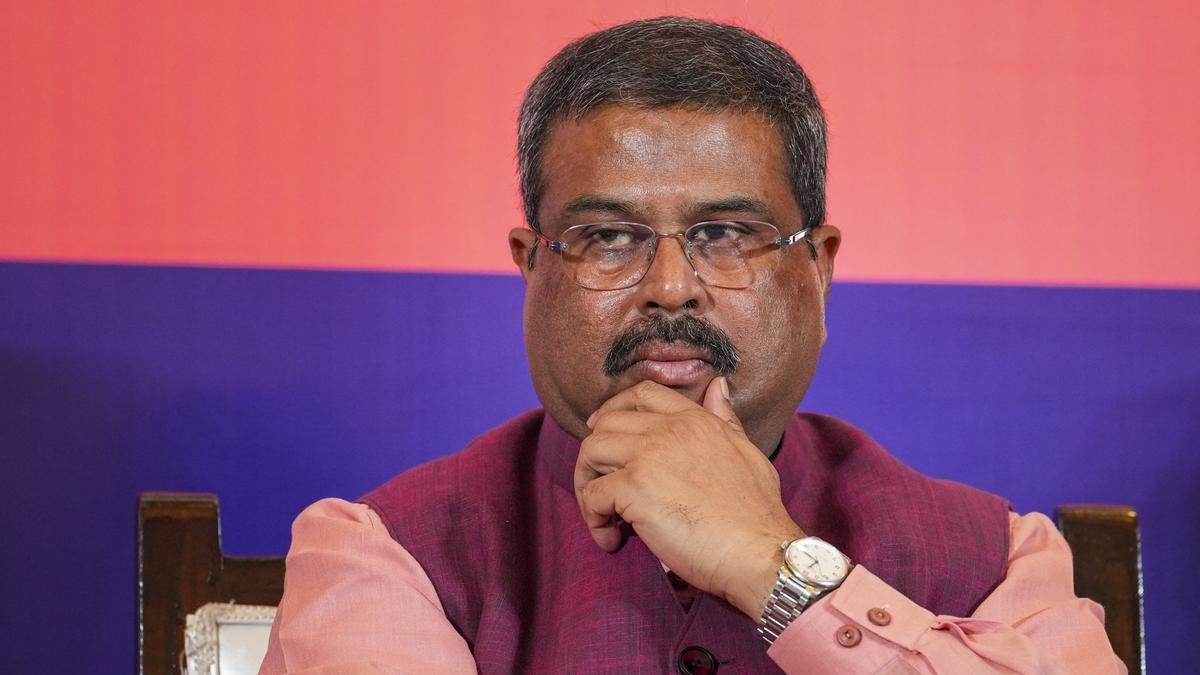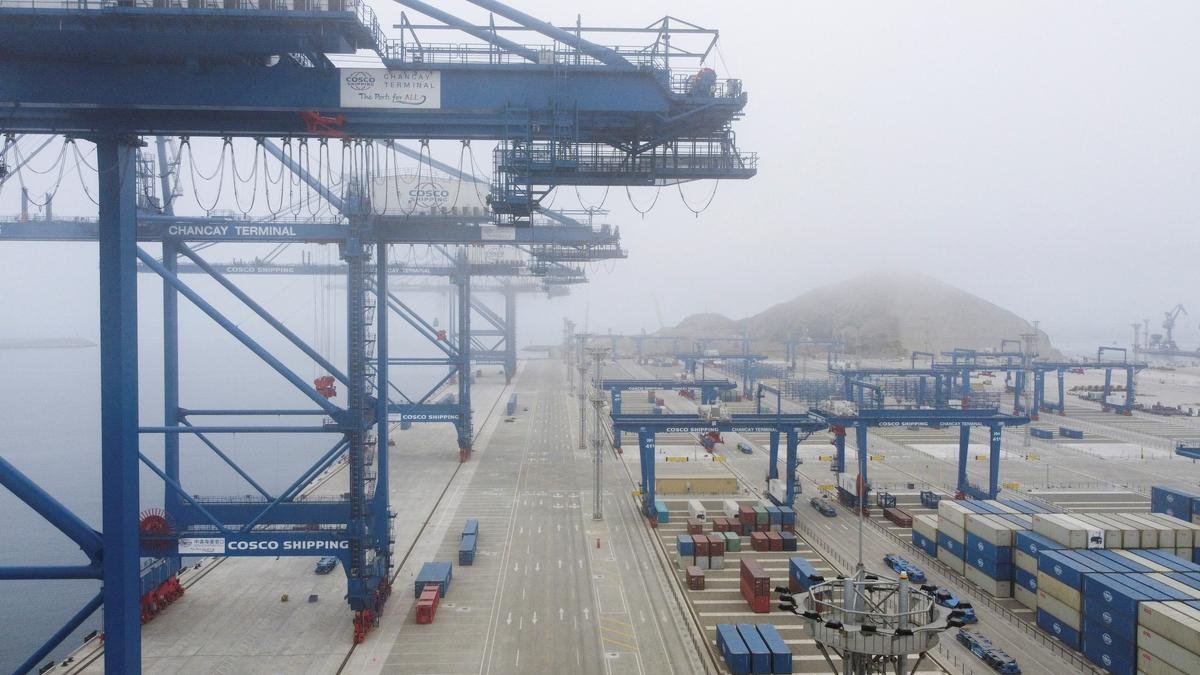In his one-year stint as co-CEO of SoftBank Investment Advisers, Alex Clavel successfully steered the company through the challenges posed by the tech investment landscape reset and facilitated SoftBank’s transition towards more stringent financial practices. Clavel highlighted India as a standout market for SoftBank in 2024, contrasting it with the relatively stagnant performance of the US public markets over the preceding three years. During an interview with ET, Clavel shared insights on the company’s strategic direction and market dynamics.
Among its portfolio firms, SoftBank Investment Advisers’ co-chief executive Alex Clavel considers India to be one of the top-performing markets. He highlighted India as the most successful IPO market globally in 2024, emphasizing the significant number of public listings. In an exclusive conversation with ET at SoftBank’s Mumbai office, Clavel noted that even compared to countries like the US, India has outshined in IPO activity, particularly beyond the tech sector.
A year ago, Clavel assumed his position at the Japanese conglomerate, where he now co-leads the investment entity SoftBank Vision Fund (SVF) alongside Rajeev Misra. Clavel is responsible for driving SVF-II forward, while Misra, who transitioned away from daily operations in 2022 and subsequently founded One Investment Management, manages the existing investments from SVF-I. Clavel’s promotion occurred during a period of increased discipline within the organization established by Masayoshi Son, following a phase of high enthusiasm, amidst a broader overhaul in the technology investment landscape…
India offers a plethora of exciting opportunities that captivate our interest.
Clavel expressed initial apprehension regarding the limited scope of capital markets at the outset. Despite being optimistic about the prospects, there were doubts surrounding the adequacy of the IPO sector for facilitating profitable exits. However, the positive evolution of India’s capital markets, bolstered by forward-looking regulatory frameworks, has fostered enhanced capital inflows and boosted domestic liquidity. Consequently, reliance on international markets such as Hong Kong and the US has been mitigated.
Three companies from SoftBank’s portfolio, namely FirstCry, Ola Electric, and Unicommerce, have made their stock market debut this year. Additionally, Swiggy is gearing up for an initial public offering (IPO) worth $1.25 billion scheduled for November.
Prime Database, a data curator for domestic capital markets, reported that 64 companies have raised a total of Rs 92,645 crore through IPOs in 2024. This figure marks the second-highest fundraising year, following closely behind the record set in 2021.
Many companies are now inclined to forgo raising late-stage capital due to the buoyant public markets, as indicated by Clavel in the Indian context. He mentioned that founders might choose to go public instead of securing substantial private investments right before an IPO. This decision is logical since in robust IPO markets, founders could select the public offering path to evade the lengthy procedures and ownership reduction associated with private funding rounds. Despite this trend, Clavel expressed enthusiasm about the numerous entrepreneurial prospects in India.
The SoftBank executive mentioned that, in comparison, the US public markets have shown little growth over the last three years. Despite expectations that Arm’s IPO over a year ago would kickstart a surge of activity, it has yet to materialize.
Arm Holdings, a chip design company headquartered in the UK and primarily owned by SoftBank with a 90% stake, made its debut on Nasdaq in 2023, marking the largest IPO of the year and generating $4.87 billion in funds.
Clavel noted that election-related anxieties, increased interest rates, and geopolitical uncertainties have impacted the US market. Following the thrill of 2021, a period of moderation typically ensues, which is currently unfolding.
He emphasized that over the past ten years, they have stood as the primary overseas investor in the Indian digital economy. Their investments sum up to $11 billion through Vision Fund-I and II alone. Adding SoftBank’s partnership capital brings the total to $14 billion, he highlighted.
SoftBank has reaped $7.5 billion in cash returns from Flipkart’s acquisition by Walmart in 2018, as well as from its public market sales in companies like Paytm, Policybazaar, and Grofers (now known as Blinkit), resulting in a complete exit for the investor.
Clavel clarified that the exits in India did not stem from any liquidity pressure, despite the challenges faced by the Vision Fund resulting from substantial losses linked to unsuccessful investments in ambitious startups like WeWork. He emphasized that SoftBank did not exert any coercion on companies to go public in India. Rather, the decision for companies to go public is based on their performance, and the best approach for maximizing returns is determined accordingly. Clavel highlighted that there is no overarching mandate from SoftBank directing companies as investors.
The co-CEO expressed confidence in having chosen the correct entrepreneurs in the appropriate industries, attributing the success of their investments to India’s reliable governance and favorable market conditions.
Among the notable companies in its portfolio, Swiggy is preparing to launch its initial public offering. This move comes three years after Zomato, its closest competitor, went public and achieved a market capitalization of $28 billion. Zomato has since established itself as a leader in food delivery and quick commerce with Blinkit. According to a statement, there is great potential in the vast markets of food delivery and quick commerce. Sriharsha Majety, the founder of Swiggy, and the team at Swiggy approach these ventures with an innovative and entrepreneurial mindset, instilling confidence in the company’s long-term performance.
AI investments
Softbank Vision Fund has invested a total of $160 billion worldwide through two editions and is now exploring opportunities in artificial intelligence (AI) infrastructure and data centers in India. The increasing interest in AI has kept venture capitalists occupied in the country for the last couple of years.
Clavel mentioned that artificial intelligence in India has the potential to evolve in this direction, capitalizing on the current digital and technological framework.
Sam Altman’s OpenAI is set to receive a massive $500 million investment from SoftBank, with the valuation of the ChatGPT creator reaching an impressive $150 billion, as confirmed by Clavel to ET.
Clavel mentioned that they have made investments in OpenAI and various other companies, acknowledging that some of them could be seen as rivals. However, it’s a standard practice in the tech investment field to have diverse investments that may intersect. Despite this, Clavel expressed continued enthusiasm for the broad spectrum of AI technologies, including their investments in OpenAI, Perplexity AI, and similar ventures.
Vision reset
Since 2017, a massive fund valued at $100 billion has undergone significant transformations under the leadership of the 49-year-old co-CEO, who has been an integral part of SoftBank for almost ten years. Clavel, who transitioned to SoftBank following a successful 20-year career as an investment banker at Morgan Stanley, acknowledged the considerable evolution within the organization.
The first Vision Fund counted on significant contributions from the Middle East and various other areas, unlike Vision Fund II which relied solely on financing from SoftBank. As the Vision Fund took shape in 2016 and 2017, substantial investments were being made. Presently, the fund allocates smaller amounts and operates under a more adaptable directive, as mentioned in an interview with ET.
SoftBank is in the process of securing a $30 million funding deal with Ultrahuman, a startup specializing in wearables. This investment represents one of the smallest amounts the company has put forward, reflecting a shift in its investment approach. Despite this, Clavel emphasized that there are no limitations on capital, citing substantial investments in OpenAI and spearheading a $1 billion funding round for the British autonomous vehicle company Wayve.
Taking on the responsibility of sorting out problematic investments within the Vision Fund, this executive has made significant advancements within SoftBank in recent years. Instead of focusing on securing large deals or attracting investor funds like those before him, Clavel earned Son’s confidence by demonstrating a reliable approach to overseeing and resolving SoftBank’s intricate or distressed transactions, as detailed in a January profile by Reuters.
Clavel stated their focus on analyzing sectors heavily influenced by technology or closely linked to it. Their investment strategy targets companies at different stages of development, from early-phase startups to those approaching an IPO, with a flexible decision-making approach.
Clavel expressed optimism about the enduring strength of the nation. He highlighted their substantial investments in China, such as prominent entities like ByteDance. Despite encountering recent obstacles, he maintains confidence in China’s lasting prospects. Drawing on his extensive experience living in the country and learning its language since 1993, his perspective on China echoes his sentiments towards New York City – showcasing unwavering belief in its resilience.
Clavel mentioned that the nation boasts a legacy of fostering value and nurturing prosperous technology ecosystems, asserting continued support for their portfolio companies. He further noted that although there is a possibility of shifting some investments from China to India, the scale of such transfer is rather modest.
According to bankers, despite the decrease in China’s IPO volume, it doesn’t automatically mean that the funds flow directly to India. The comparable growth and consumer patterns in India resemble those witnessed in China ten years ago, providing optimism for the market.










